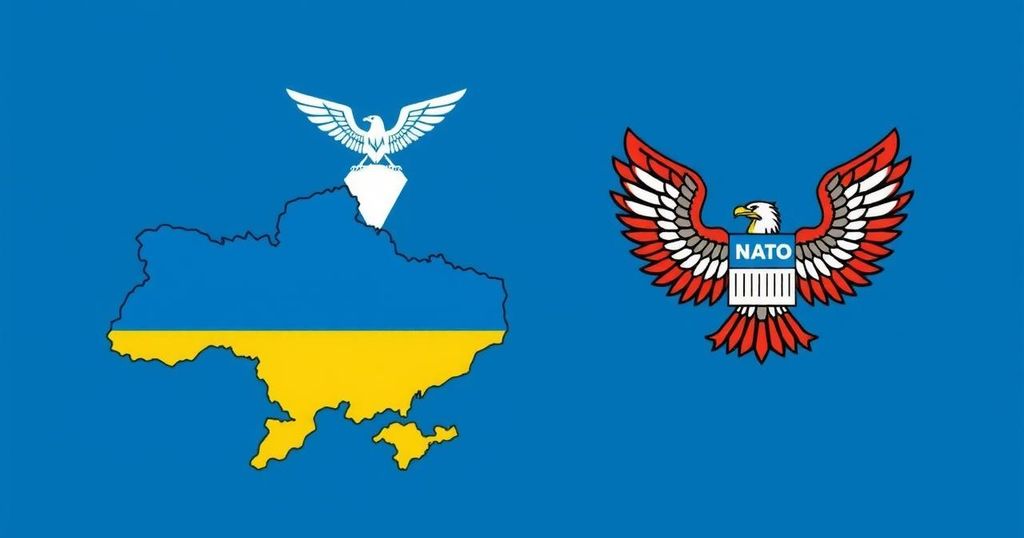NATO defense chiefs met amid concerns that U.S. support for Ukraine may decline following the upcoming presidential election, particularly if Donald Trump wins. Secretary of Defense Lloyd Austin noted bipartisan support in Congress, but NATO officials are preparing for a potential reduced U.S. role, pushing European nations to increase their contributions. As Russia receives significant military support from North Korea, Iran, and China, NATO seeks to enhance its collective military aid to Ukraine while also exploring alternative production strategies in Europe.
The discussions among NATO defense chiefs were significantly influenced by the approaching United States presidential election, which poses potential risks to the ongoing military support for Ukraine. Secretary of Defense Lloyd Austin acknowledged the uncertainty surrounding U.S. backing during a closed-door meeting with NATO allies, where he emphasized the importance of bipartisan support in Congress, despite concerns about a potential reduction in aid should Donald Trump win. NATO officials expressed apprehension regarding the U.S. assumption of a diminished role in supporting Ukraine, prompting calls for increased European contributions to military assistance. Amidst a backdrop of escalating military support from nations such as Iran, North Korea, and China to Russia, the prospect of a Trump presidency raises significant questions about the future of U.S. aid to Ukraine. Trump’s recent remarks, suggesting ambivalence towards Ukraine’s success in the conflict, have caused alarm among NATO officials, who are now contemplating a strategic pivot towards greater European leadership in the provision of support. As the conflict in Ukraine persists, NATO acknowledges the pressing need for Ukraine to have access to a comprehensive range of military capabilities, including long-range strike options. Although U.S. officials have advocated for the use of Ukrainian-made drones as more effective tools for targeting Russian positions, the larger concern remains the strategic balance of military aid as the winter months approach. NATO is currently endeavoring to consolidate control over the training and support of Ukrainian forces to ensure continuity of aid in the event that the U.S. reduces its involvement. Simultaneously, Europe is working to enhance its own military production capabilities to mitigate the impact of any potential U.S. withdrawal from support. Reports indicate that Russia is producing significantly more munitions than NATO, and has been benefiting from substantial logistical and military assistance from North Korea and Iran, thereby complicating the situation for Ukraine and its allies. Secretary Austin reassured NATO partners of the U.S.’s commitment to ramping up production and support for Ukraine, emphasizing the importance of long-term capabilities to ensure success in the conflict. In summary, NATO’s approach to Ukraine is increasingly influenced by the uncertainty of U.S. political dynamics, necessitating greater European initiative to secure military aid amid evolving global threats.
The article discusses the implications of the impending U.S. presidential election on NATO’s support for Ukraine in the ongoing conflict with Russia. It highlights the potential decrease in U.S. aid should Donald Trump be re-elected, alongside Russia’s increased military capabilities bolstered by support from countries like North Korea and Iran. The article illustrates the strategic shifts within NATO as European allies prepare to take a more prominent role in military assistance to Ukraine, especially in light of varying U.S. political sentiments that could affect future aid commitments.
The NATO defense meeting underscored the precarious nature of international support for Ukraine amid upcoming U.S. electoral uncertainties. As NATO seeks to shift the burden of assistance towards European nations, the alliance stands at a critical crossroad where cohesion and strategic response to Russian aggression are essential for maintaining Ukraine’s defense capabilities. The long-term support for Ukraine will hinge on navigating both the domestic U.S. landscape and the evolving geopolitical threats posed by Russia and its allies.
Original Source: www.cnn.com






